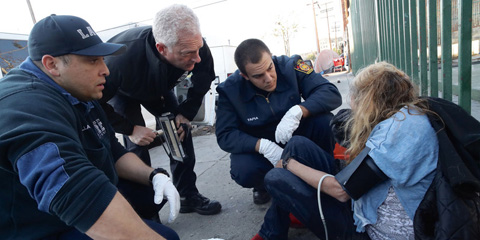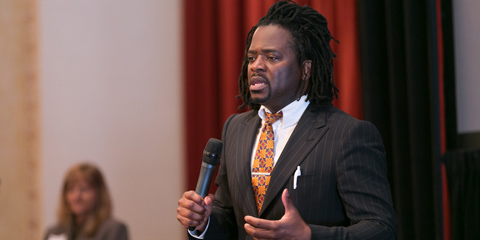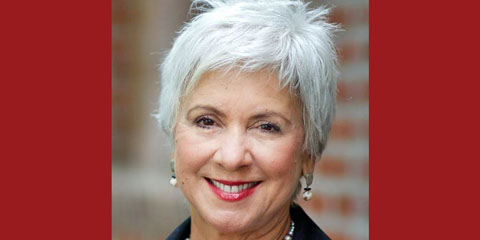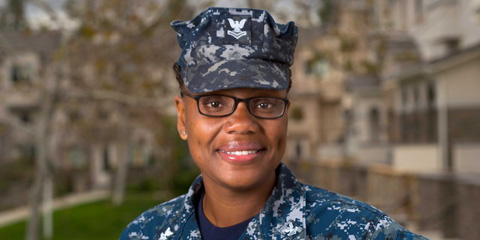News Archive
Research
-

A new model of care holds promise in improving the physical health of people with mental illness, new research finds, potentially increasing the life span of individuals who typically die 25 years earlier than the general population.
-

Americans today live shorter, sicker lives than people in most other developed countries.
-

The majority of calls the Los Angeles Fire Department (LAFD) receives are misdirected — only 1 percent of calls are associated with actual fires. Many calls come from people seeking treatment for nonurgent conditions, resulting in the wide misuse of emergency medical services (EMS), which reduces the quality of care received by those in serious need.
-

It’s safe to say Benjamin Henwood is having a good year.
The assistant professor at the USC Suzanne Dworak-Peck School of Social Work recently secured several large federal grants to explore issues among homeless youth and older adults, is helping oversee the annual homelessness count in Los Angeles and is emerging as a leading expert as the social work profession takes on the grand challenge of homelessness on a national level.
-

Tech, hackathons, housing and empathy were among the approaches to homelessness discussed Wednesday at an event that included service providers, law enforcement officers, community leaders and people who have been homeless.
“We have the best playing field we’ve ever had to make things better for every human being in L.A. County,” said Marilyn L. Flynn, dean of the USC Suzanne Dworak-Peck School of Social Work, noting a number of new policy and service initiatives from city, county and state governments designed to help end homelessness.
-

Public health is at risk for losing ground. To be consequential under the current political climate, we must produce timely, accessible research with policy significance. We must revamp academic and professional training for the current and future workforce and employ contemporary, public-facing strategies to convey information about science and health policy to all Americans.
-

At just over 6 feet tall, Lesley Adams Williams usually stands out in a crowd.
Being tall can have an isolating effect during the teen years. Williams knows that firsthand. She also knows it can be an advantage: Her height and athletic ability earned her a college basketball scholarship. It also drew a troubled student to her, setting her on the path to a social work career.
-

Tammie Johnson sits a stone’s throw from Los Angeles International Airport, where thousands zip around the world every day. But swiveling on a chair next to her tent, she doesn’t feel like she’s going anywhere.
“I don’t know how long I can last out here,” she said.
Before Johnson, 54, was homeless, she said, she had a place in Hermosa Beach and a good job at Northrup Grumman. “I’ve had new cars — I’ve had it all,” she said. “But those things came to an end.”
-

A plummeting birthrate and scarcity of resources have left Cuba facing a demographic dilemma.
-

People often draw on their faith as a source of hope and strength in the face of life’s challenges. Yet providers are often wary of using spirituality in the treatment of serious mental health issues, fearing it violates the separation of church and state and will lead to proselytizing or alienate patients who are not religious. Others even regard spiritual beliefs as potential psychiatric symptoms.